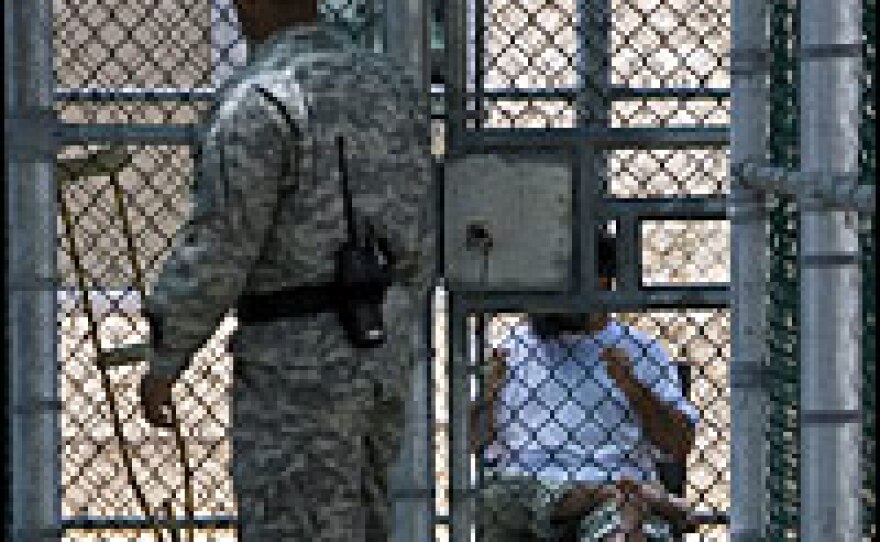
Last year, in the final days of a Republican-led Congress, lawmakers made what some consider a serious mistake.
In a law establishing military commissions, Congress did away with habeas corpus protections for all foreigners detained by the United States as suspected terrorists. That means that, unlike U.S. citizens, these people do not have access to federal courts to challenge their detention.
A bipartisan bill before the Senate would restore those habeas corpus rights, but President Bush's allies are blocking it with a filibuster that faces a make or break vote today.
Leading the push to restore habeas corpus protections for those held in places like Guantanamo Bay, Cuba, is the Democratic chairman of the Senate Judiciary Committee, Patrick Leahy.
This is a time of testing — future generations will look back to examine the choices we've made during a time when security was too often invoked as a watchword to convince us to slacken our defense of liberty and the rule of law," Leahy said.
Leahy's co-sponsors are Republican Arlen Specter and Democrat Christopher Dodd. Dodd reminded colleagues that his father, Thomas, who was also a senator, once served as a prosecutor at the Nazi war criminal trials in Nuremberg, Germany. Dodd told colleagues the Soviet Union was not alone in wanting to kill the accused Germans:
"Winston Churchill, the former British prime minister, also advocated summary executions for the defendants at Nuremberg. The United States — (former Supreme Court Justice) Robert Jackson, Henry Stimson, the Republican secretary of war under (former President) Franklin Roosevelt, Ben Rosen and others — argued as long along with Robert Jackson and my father that, no, we were different; that we're going to demonstrate to the world that civility and the rule of law was what was at stake in the war with Germany and Japan; that we were not going to succumb to the same kind of treatment that they gave to their victims," Dodd said.
Dodd failed to move Alabama Republican Jeff Sessions, who insisted the U.S is still a model for the rule of law:
"These kind of dictators and communists and Nazis, they go out and grab people and put them in jail and never charge them, never announce where they are even," Sessions said. "So, that's not what we want to do here. Never in the history, however, of the writ's existence has an English or American court granted habeas to enemy combatants held during a time of war," Sessions argued.
But Jen Daskal, the senior counterterrorism adviser for Human Rights Watch, said that is not so. Daskal said German saboteurs detained during World War II were, in fact, allowed to challenge their detention in a U.S. court.
Daskal said, like them, many current detainees were picked up far from any battlefield:
"In such a situation, the possibility of mistakes and the need for an independent check is significantly higher and critical to ensure that the United States is detaining who it says they're detaining, and that the United States is in fact detaining the right people," she said.
It will take at least 60 votes to break the Republican-led filibuster blocking the habeas corpus measure. In an almost evenly divided Senate, that could be a hard number to reach. The White House has already threatened to veto the Defense Authorization Bill if the habeas corpus issue is added as an amendment.
Arizona Republican Jon Kyl called that defense bill enormously important for U.S. troops:
"To add a totally extraneous provision amending a different bill to the Defense Authorization Bill, especially one which carries the suggestion of a presidential veto, would be the height of irresponsibility on the part of the United States Senate," Kyl said.
Whatever the outcome, the Supreme Court now plans to weigh in on the habeas corpus debate.
Copyright 2022 NPR. To see more, visit https://www.npr.org. 9(MDAzMjM2NDYzMDEyMzc1Njk5NjAxNzY3OQ001))






